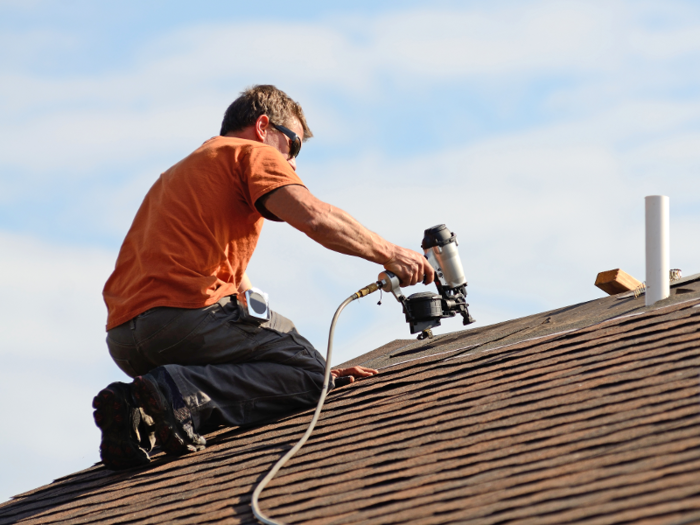
There's no doubt about it: Owning the place you live is expensive. And it's not always small expenses that add up, either.
Things like a new roof and gutters cost Business Insider contributor Kate Dore about $7,800 for her home in Nashville, she writes. And something as seemingly simple as a crack in her living room ceiling cost her about $3,900.
When you buy a house, condo, or apartment, you'll also need to be saving for repairs. With renting, you're not responsible for upkeep and maintenance.

Renter's insurance generally costs between $15 and $20 per month. Business Insider's Tanza Loudenback says she pays less than $12 per month to insure her Los Angeles apartment and the belongings in it. The bottom line: It's affordable.
Homeowner's insurance is much more expensive — more like $100 per month.

In even modestly priced cities across the US, it will take median income earners over 10 years to save for a 20% down payment, reports Business Insider's Libertina Brandt.
According to data from Unison, it will take the typical earner about 12 years to save the down payment for a house in Columbus, Ohio. And for those looking to live in even more expensive cities, those time frames get even longer — in San Francisco, it will take the typical earner about 40 years to save.
While renters might need to save a security deposit, it's bound to be considerably less than a down payment and closing costs.

In some neighborhoods, homeowner's association fees can be pretty high. Realtor.com reports that the typical homeowner's association fee runs about $200 to $300 per month. That's a big expense, and it's one that would really add up if you owned the home — but as a renter, you likely won't be responsible for this.

Homes gain and lose value all the time, and it doesn't always just have to do with the house itself. Neighborhoods can go up and down in value, for instance, or school districts can have a big impact on the house's value.
These are things you'd have to consider if you were buying the home. You might not want to live in the same area if you were going to buy the property.
But as home value fluctuates, it probably won't be affecting your monthly rent payment too much. Without having to consider these factors, there's a wider variety of locations available, rather than focusing on where the resale market is heating up.

Property taxes can be a big expense: In New Jersey, Illinois, and New Hampshire, property taxes are over 2%, according to the Tax Foundation and The Fiscal Times. In New Jersey, for example, a $250,000 home and a tax rate of 2.38% would make for a yearly tax payment of $5,950.
Many states don't have property taxes that are quite that high, but the more a home is worth, the more it will cost in property tax. And as a renter, that's another worry you won't have.

If you're not planning on staying in the same city for years, renting a house is the ideal way to go, as there are far fewer commitments.
When you buy a home, you should expect to live there for at least five years, say personal finance experts and authors Manisha Thakor and Sharon Kedar. Ideally, they say five years is enough time for housing prices to rise, and for you to sell the home and cover the costs of buying it initially.
And for those who can't promise five years, it's probably better to rent. Renting buys you the freedom to choose what you want in the future. If that means leaving to move across the country, you're able to do that, no 30-year mortgage in sight.
 Love in the time of elections: Do politics spice up or spoil dating in India?
Love in the time of elections: Do politics spice up or spoil dating in India?
 Samsung Galaxy S24 Plus review – the best smartphone in the S24 lineup
Samsung Galaxy S24 Plus review – the best smartphone in the S24 lineup
 Household savings dip over Rs 9 lakh cr in 3 years to Rs 14.16 lakh cr in 2022-23
Household savings dip over Rs 9 lakh cr in 3 years to Rs 14.16 lakh cr in 2022-23

Copyright © 2024. Times Internet Limited. All rights reserved.For reprint rights. Times Syndication Service.